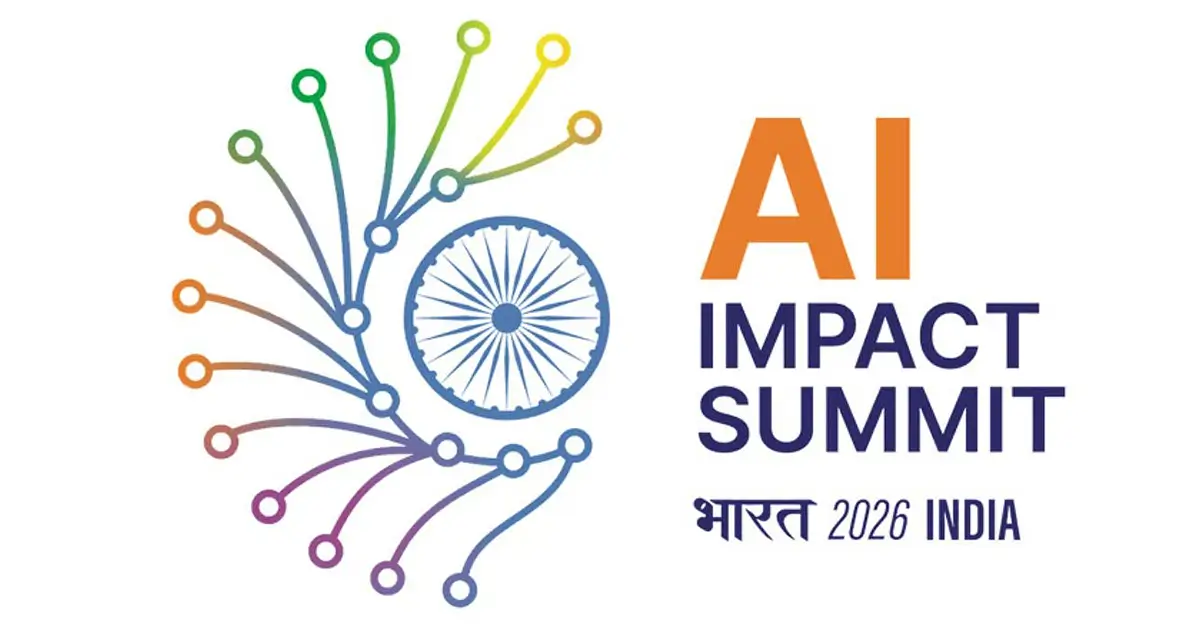Are you watching your competitors gain efficiency while you struggle with manual processes that drain your team’s time and energy? Small business owners in the Pacific Northwest face a critical decision: embrace AI strategy now or risk falling behind in an increasingly automated marketplace.
We will show you exactly how to assess your AI readiness, implement the right tools, and create a winning strategy that transforms your operations without overwhelming your team or budget. You’ll have a clear roadmap to leverage AI consulting for small business success.
Understanding AI Strategy for Professional Services
AI strategy for small businesses isn’t about replacing humans with robots. It’s about creating intelligent workflows that free your team to focus on high-value activities that drive revenue and build client relationships.
What AI Strategy Really Means for Your Business
An effective small business AI strategy identifies repetitive tasks, automates routine processes, and enhances decision-making through data insights.
For professional services firms with under 50 employees, this typically means streamlining client communications, automating administrative tasks, and improving service delivery speed.
Modern AI tools can handle everything from scheduling appointments to generating initial draft proposals, allowing your team to concentrate on creative problem-solving and client relationship building.
The key lies in selecting the right combination of tools and implementing them strategically.
Curious how much time your business could reclaim?
Most business owners are shocked when they discover the hidden hours lost to routine tasks. Contact us for a quick 15-minute call to set up a time audit for your company. We’ll identify your biggest time drains and show you exactly which ones AI can eliminate.

Assessing Your Current AI Readiness
Before diving into AI implementation, you need to understand where your business stands today and what changes are necessary for successful automation adoption.
Evaluating Your Digital Infrastructure
Your current technology stack forms the foundation for AI integration. Most effective AI tools require reliable internet connectivity, cloud-based data storage, and modern software systems that can integrate with automation platforms.
Review your existing software subscriptions and ask yourself:
- Can these systems share data easily?
- Do you have consistent processes for common tasks?
- Are your team members comfortable learning new digital tools?
These questions reveal whether you’re ready for immediate AI implementation or need preliminary upgrades.
Many small businesses discover that improving their basic digital infrastructure pays immediate dividends even before adding AI capabilities.
Simple changes like moving to cloud-based file storage or implementing project management software create the organized data environment that AI tools need to function effectively.
Identifying Automation Opportunities
The most successful AI implementations start with clear identification of tasks that consume excessive time but require minimal creative thinking. Common candidates include data entry, appointment scheduling, invoice processing, basic customer inquiries, and report generation.
Document how your team currently spends their time for one week. Look for activities that happen repeatedly, follow predictable patterns, and don’t require complex decision-making. These tasks represent your highest-value automation opportunities.
Professional services firms often find that client intake processes, meeting scheduling, and follow-up communications offer the most immediate returns on AI investment. An AI business consultant can help identify less obvious opportunities that might not be apparent from your daily perspective.
Team Readiness and Training Requirements
Your team’s comfort level with technology directly impacts AI adoption success. Some employees embrace new tools quickly, while others need more support and training to feel confident with automated systems.
Successful AI consulting for small business should always include comprehensive training components. Your team needs to understand not just how to use new tools, but why the changes benefit both their daily work and the company’s long-term success.
Consider conducting informal surveys to gauge your team’s current technology confidence levels and learning preferences. This information helps AI consultants customize training approaches that accelerate adoption and reduce resistance to change.
Wondering if your business is truly ready for AI automation?
Stop guessing and get certainty. Schedule a discover call now and together, we’ll figure out which AI tools will deliver the biggest impact for your specific situation.

Essential AI Tools for Small Business Operations
Communication and Customer Service Automation
AI-powered communication tools handle routine customer inquiries, schedule appointments, and manage follow-up sequences automatically. These systems typically integrate with your existing email and phone systems, creating seamless experiences for both clients and staff.
Modern chatbots and email automation platforms can qualify leads, answer frequently asked questions, and route complex inquiries to appropriate team members. For professional services firms, this automation often handles 60-70% of initial client communications, freeing staff for more complex client relationship work.
The key to successful communication automation lies in maintaining your brand voice and ensuring smooth handoffs when human intervention becomes necessary. Quality AI workflow automation professional services providers help configure these systems to match your company’s communication style and client expectations.
Document and Data Management Solutions
AI-powered document management transforms how small businesses handle contracts, proposals, invoices, and client records. These systems automatically categorize documents, extract key information, and flag items requiring attention.
For AI accounting firm automation, these tools can process receipts, categorize expenses, and generate preliminary financial reports with minimal human oversight. The time savings in bookkeeping and administrative tasks often justifies the entire AI investment for many small businesses.
Advanced systems learn from your preferences over time, becoming more accurate at document classification and data extraction. This continuous improvement means your automation becomes more valuable as you use it longer.
Marketing and Sales Process Enhancement
AI marketing tools analyze customer behavior, optimize advertising campaigns, and personalize client communications based on interaction history and preferences. For small businesses, this level of sophisticated marketing was previously available only to large corporations with dedicated marketing teams.
Email marketing automation sequences nurture leads through the sales process, delivering relevant content at optimal times based on recipient behavior. Social media scheduling tools maintain consistent brand presence across platforms without requiring daily manual posting.
Sales process automation tracks lead sources, conversation stages, and follow-up requirements, ensuring no potential clients fall through cracks due to human oversight. Many AI consulting marketing agencies specialize in configuring these tools for specific industries and business models.
Overwhelmed by the endless AI tool options?
You’re not alone. There are thousands of AI tools in use today. You can skip months of trial-and-error testing by scheduling a quick call for an AI Tool Selection Consultation. We’ll recommend the exact 3-5 tools that match your business needs and budget perfectly.

Implementing AI Workflow Automation
Successful AI implementation requires systematic planning and gradual rollout rather than attempting to automate everything simultaneously.
Prioritizing Implementation Areas
Start with business processes that are both high-volume and standardized. These areas offer the quickest returns on investment while providing valuable learning experiences for more complex automation projects.
Most professional services firms find success beginning with appointment scheduling, client intake forms, or invoice generation. These processes have clear success metrics and limited complexity, making them ideal testing grounds for AI integration.
Consider the impact on client experience when prioritizing implementation areas. Changes that improve response times or reduce client friction should receive higher priority than purely internal efficiency improvements.
Integration with Existing Systems
Modern AI tools are designed to work alongside existing software rather than replacing entire systems. The best implementations leverage Application Programming Interfaces (APIs) to connect different software platforms automatically.
Your current Customer Relationship Management (CRM) system, accounting software, and email platforms likely offer integration capabilities with popular AI tools. Professional AI consultants can map these connections and configure data flows that eliminate manual data entry between systems.
Proper integration ensures that information flows seamlessly between platforms, reducing errors and maintaining data consistency across your entire technology stack.
Change Management and Staff Training
The human element often determines whether AI implementation succeeds or fails. Clear communication about changes, comprehensive training, and ongoing support help teams adapt successfully to new automated workflows.
Introduce changes gradually, allowing staff to become comfortable with each new tool before adding additional automation. This approach reduces overwhelm and builds confidence in the technology.
Regular feedback sessions during implementation help identify areas where adjustments might improve adoption rates or system effectiveness. Your team’s insights often reveal optimization opportunities that weren’t apparent during initial planning.
Ready to implement but worried about making costly mistakes?
Smart move – 67% of small businesses waste money on wrong AI implementations. Our Implementation Roadmap Service eliminates guesswork with a step-by-step plan tailored for your business. Get your custom roadmap and avoid the expensive trial-and-error phase entirely.

Building Your AI Consulting Strategy
Working with the right AI implementation consultant accelerates success while avoiding common pitfalls that can derail automation projects.
Selecting the Right AI Consultant
Look for AI consultants who specialize in businesses similar to yours in size and industry. A consultant experienced with professional services firms understands the unique challenges and opportunities in your sector.
Ask potential consultants about their implementation methodology, training approach, and ongoing support offerings. The best AI business process automation consultants provide comprehensive support from initial assessment through full implementation and beyond.
Request case studies and references from similar businesses. Speaking with other small business owners who have worked with the consultant provides valuable insights into their working style and results delivery.
Affordable AI Consulting Options
Many small business owners assume AI consulting requires massive budgets, but affordable AI consulting small business options exist for companies of all sizes. Some consultants offer phased implementation approaches that spread costs over time while delivering immediate benefits.
Look for consultants who offer packages specifically designed for businesses under 50 employees. These specialized offerings typically focus on high-impact, low-complexity implementations that deliver quick wins.
Consider hybrid consulting models that combine initial setup assistance with self-service training resources. This approach provides professional guidance for critical decisions while keeping ongoing costs manageable.
Measuring Success and ROI
Successful AI implementations include clear metrics for measuring return on investment. Common measurements include time savings, error reduction, customer satisfaction improvements, and revenue per employee increases.
Establish baseline measurements before implementation begins. Document current performance levels for processes you plan to automate, creating clear benchmarks for improvement assessment.
Plan for both immediate efficiency gains and longer-term strategic benefits. While time savings often appear quickly, improvements in client satisfaction and business growth may take several months to become apparent.
Blaser Consulting Provides Ongoing Support
All of our clients get ongoing strategic support, not just a one-time setup. If you’re ready you can book a strategy call and learn how our approach ensures your AI investment delivers compounding returns year after year.

Common AI Implementation Challenges
Understanding potential obstacles helps small businesses prepare for and overcome typical hurdles during AI adoption.
Budget and Resource Constraints
Small businesses often worry that AI implementation requires significant upfront investment, but many automation tools offer scalable pricing that grows with usage and results.
Focus on solutions that offer immediate value rather than comprehensive platforms that might exceed current needs. Starting with targeted automation in specific areas builds success momentum while keeping initial costs manageable.
Consider the cost of NOT implementing AI automation. Manual processes that consume staff time represent ongoing expenses that compound monthly. Automation investments often pay for themselves within 6-12 months through efficiency improvements.
Technical Integration Difficulties
Modern AI tools are designed for easier integration than previous generations of business software, but technical challenges can still arise during implementation.
Working with experienced AI workflow automation professional services providers significantly reduces integration complexity. These specialists understand common technical hurdles and have established solutions for most compatibility issues.
Plan for a gradual rollout that allows testing and adjustment before full deployment. This approach identifies technical issues early when they’re easier to resolve.
Staff Resistance and Adoption Issues
Some team members naturally resist changes to familiar processes, especially when technology replaces tasks they’ve performed manually for years.
Address concerns directly through open communication about how AI tools will enhance rather than replace human capabilities. Show specific examples of how automation eliminates tedious tasks while creating opportunities for more interesting, higher-value work.
Provide comprehensive training and ongoing support to build confidence with new tools. When staff members feel competent using AI systems, resistance typically transforms into enthusiasm for the improved efficiency.

Industry-Specific AI Applications
Different business types benefit from specialized AI applications tailored to their unique operational requirements and client expectations.
Professional Services Automation
Law firms, accounting practices, consulting businesses, and other professional services organizations find particular value in AI tools that handle client communication, document management, and billing processes.
AI consultant for professional services specialists understand the regulatory requirements and client confidentiality needs that affect tool selection and configuration in these industries.
Common applications include automated time tracking, contract analysis, client portal management, and regulatory compliance monitoring. These tools often integrate with existing practice management software to enhance rather than replace current systems.
Marketing Agency AI Solutions
AI consulting marketing agencies benefit from tools that optimize campaign performance, analyze client data, and automate reporting processes. These specialized applications help agencies deliver better results while reducing time spent on routine tasks.
Social media management, content creation, performance analytics, and client communication can all benefit from AI automation. The key lies in maintaining creativity and client relationships while automating supporting processes.
Small Business Service Providers
Local service businesses like restaurants, retail stores, repair services, and healthcare practices find value in AI tools that improve customer experience and operational efficiency.
Appointment scheduling, inventory management, customer communications, and basic marketing automation often provide the highest returns for these businesses.

Future-Proofing Your AI Strategy
Technology continues evolving rapidly, making it important to build flexibility into your AI strategy for long-term success.
Staying Current with AI Developments
The AI landscape changes quickly, with new tools and capabilities emerging regularly. Successful businesses build learning and adaptation into their technology strategies.
Subscribe to relevant industry publications, attend local technology events, and maintain relationships with AI consultants who can advise on emerging opportunities.
Consider joining local business networks or industry associations that share AI implementation experiences and recommendations.
Scaling Your AI Implementation
Start with focused implementations that deliver clear value, then expand automation to additional areas as your team becomes comfortable with the technology and processes.
Document your successes and lessons learned during initial implementations. This knowledge becomes valuable for training new team members and expanding automation to other business areas.
Plan for growth by selecting AI tools that can scale with your business. Solutions that work well for current needs but can’t accommodate expansion may require replacement as your company grows.
Continuous Improvement and Optimization
AI systems improve through use and feedback. Regular review of automated processes reveals optimization opportunities and areas where additional automation might provide value.
Schedule quarterly reviews of your AI implementations to assess performance, identify improvements, and plan next steps.
Stay connected with your AI consultant for ongoing optimization advice and updates about new capabilities that might benefit your business.
Getting Started with AI Implementation
Ready to begin your AI journey? Follow these practical steps to move from planning to implementation.
Creating Your AI Readiness Assessment
Document your current processes, technology infrastructure, and team capabilities. This assessment provides the foundation for successful AI implementation planning.
Identify your top three automation priorities based on time savings potential and implementation complexity. Focus on areas where success seems most achievable to build momentum for larger projects.
Developing Your Implementation Timeline
Plan for gradual implementation over 6-12 months rather than attempting comprehensive automation immediately. This timeline allows for proper training, testing, and adjustment.
Include training time, testing periods, and buffer time for unexpected challenges in your timeline. Realistic scheduling increases success probability while reducing stress on your team.
Taking the Next Step
Schedule a consultation discovery call to discuss your specific needs, budget, and timeline. Our initial assessments will help you understand your options and potential returns on investment.
We specialize in helping small businesses implement practical AI solutions that deliver immediate value. Our humanin-the-loop approach ensures technology enhances rather than replaces your team’s capabilities.
Are you ready to transform your business operations with strategic AI implementation? Contact us today to schedule your free AI readiness assessment and discover how affordable automation can drive your business growth.
Frequently Asked Questions
AI implementation costs vary widely based on business size, complexity, and chosen solutions. Most small businesses can start with basic automation tools for $50-200 per month, with professional consulting services ranging from $2,000-10,000 for initial setup and training. Many businesses see return on investment within 6-12 months through time savings and efficiency improvements.
No, modern AI tools are designed for business users without technical backgrounds. However, working with an AI implementation consultant can significantly accelerate success and help avoid common pitfalls. Most consultants provide comprehensive training to ensure your team feels comfortable using new systems.
AI tools are designed to augment human capabilities rather than replace workers. Successful implementations eliminate tedious, repetitive tasks while freeing employees to focus on creative problem-solving, client relationships, and strategic activities that drive business growth. Most businesses find that AI allows them to serve more clients with existing staff.
Many businesses see immediate time savings within the first few weeks of implementing basic automation tools. More significant results typically appear within 3-6 months as teams become comfortable with new processes and systems are optimized based on usage patterns.
The best automation candidates are repetitive tasks that follow predictable patterns and don’t require complex decision-making. Common examples include appointment scheduling, data entry, invoice processing, email follow-ups, and basic customer inquiries.
Look for consultants who specialize in businesses similar to yours in size and industry. Ask about their implementation methodology, training approach, and ongoing support options. Request references from previous clients and case studies showing measurable results.
Most modern AI tools are designed to integrate with popular business software through APIs (Application Programming Interfaces). Professional consultants can assess your current technology stack and recommend solutions that work seamlessly with existing systems.
Well-implemented AI systems include human oversight and error correction mechanisms. Initial implementations typically require more monitoring, but systems become more accurate over time through use and feedback. Professional setup includes safeguards to minimize errors and easy correction processes.
Reputable AI service providers implement enterprise-level security measures including data encryption, secure data centers, and compliance with privacy regulations. When selecting tools, prioritize providers with strong security credentials and clear data protection policies.
Successful adoption requires clear communication about benefits, comprehensive training, and gradual implementation. Focus on how AI eliminates tedious tasks and creates opportunities for more interesting work. Provide ongoing support and address concerns directly to build confidence and enthusiasm.
















